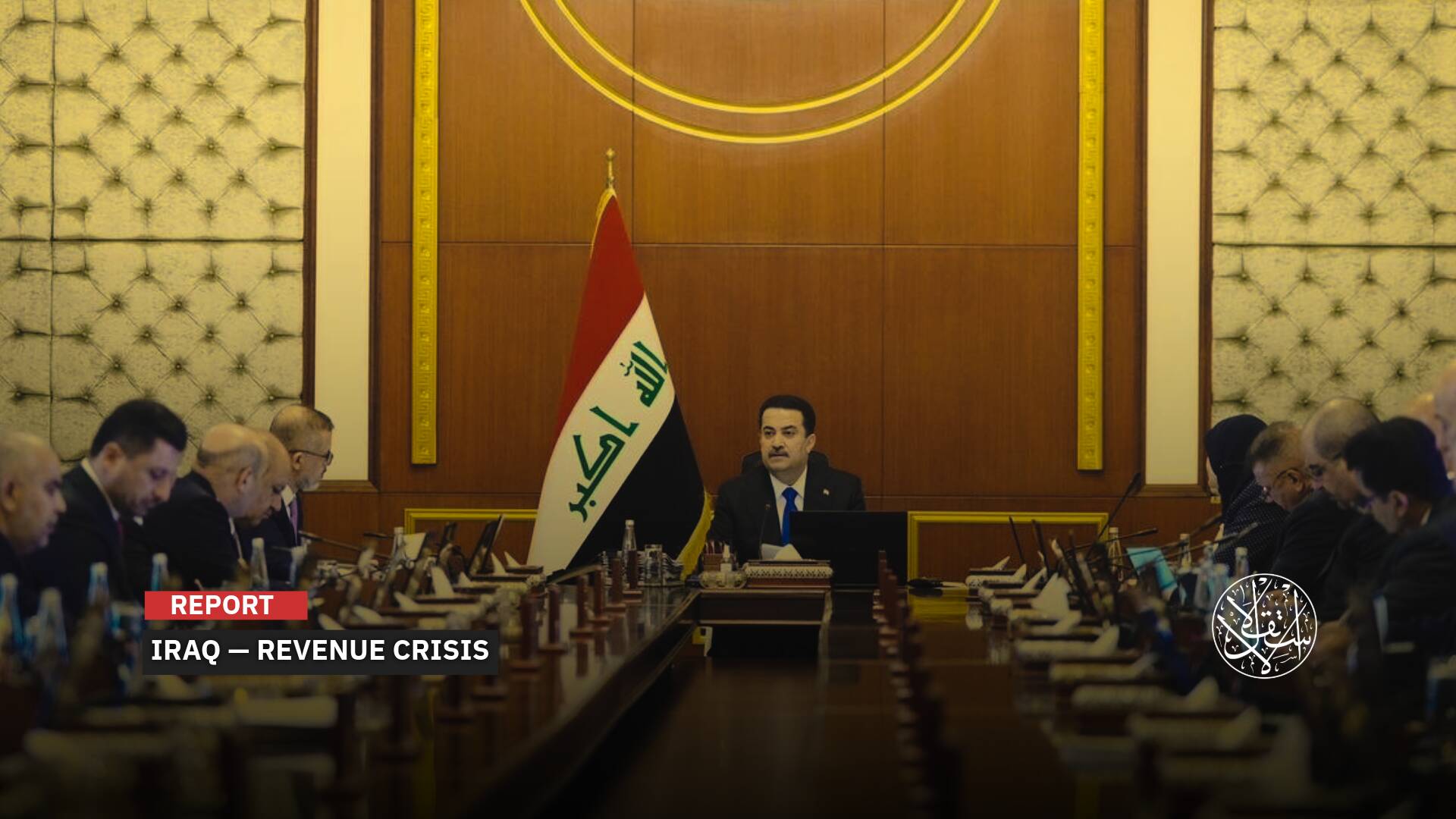Israel's Concerns Over Syrian Opposition Gains Despite Assad's Losses

Assad took no steps to support Hamas or Hezbollah, but the Syrian opposition did.
Contrary to claims promoted by international and Arab media suggesting that “Israel” benefits from the Syrian opposition's actions against Bashar al-Assad’s regime, the Israeli state appears increasingly uneasy about the revolutionaries’ victories, including their liberation of Aleppo and the potential for regime change.
Initially, some Israeli and American voices framed the opposition's successes as advantageous for “Israel,” as they reclaimed areas previously controlled by Hezbollah and Iran. However, the narrative quickly shifted, with warnings growing louder that the victorious factions are “Islamists,” posing a far greater threat to the Israeli Occupation.
‘Beware the Islamists’
As the Syrian opposition's victories mount, Israeli analysts have issued warnings, claiming that “the threat posed by Syrian opposition groups will surpass that of Bashar al-Assad.”
The concern centers on the armed Syrian opposition factions, described as having a “jihadist Islamic ideology,” with defending their homeland deeply embedded in their beliefs—making them a significant threat to “Israeli Occupation’s borders.”
This prompted Israeli Prime Minister Benjamin Netanyahu to convene a special security meeting on November 29, 2024, to discuss the developments in Syria, as per Yedioth Ahronoth.
The meeting included military and intelligence officials to address “the ongoing offensive in northern Syria and the opposition's victories,” as well as their implications for “Israel.”
Intelligence chiefs informed Netanyahu that while the revolutionaries’ progress might offer short-term benefits, the political changes in Syria could eventually lead to significant challenges for “Israel,” The Times of Israel reported on November 30.
One short-term advantage cited was Hezbollah’s likely shift in focus and resources to Syria to defend Assad's regime, potentially strengthening the ceasefire between “Israel” and Lebanon. “Israel” could also gain greater military freedom of action within Syria.
However, intelligence officials cautioned that the collapse of Assad's regime is likely to create chaos, potentially fostering military threats against “Israel.”
Under the headline “Israel Must Prepare for Potential Emergence of Sunni Jihadist Threat on Its Borders,” Yedioth Ahronoth warned that if “Sunni rebels” take control of Syria, “Israel” could face a more severe security challenge.
While weakening Assad might serve the Israeli Occupation’s interests in some ways, the rise of “Sunni rebels” could pose significant dangers. The paper highlighted Hamas as a clear example of the risks posed by “Sunni jihadists.”
Given this looming threat, the report suggests Assad might attempt to rebuild ties with the West and moderate Sunni Arab states, including Saudi Arabia and the UAE, to counter the Islamists—leaving “Israel” to decide its course of action.
In early December 2024, Haaretz echoed these concerns, noting that Israeli authorities fear growing power among extremist factions in Syria could allow them to control vast areas and ultimately threaten “Israel.” The outlet highlighted increasing anxiety over these groups' potential expansion along “Israeli borders,” “destabilizing” the region's security.
Channel 12 added that Israeli Occupation’s November 29 security discussions raised alarms over Assad’s strategic capabilities, including remnants of chemical weapons, potentially falling into jihadist hands. Netanyahu emphasized close coordination between the Israeli and American militaries to prepare for the possible collapse of Assad’s regime and its fallout.
Reports also indicated that the Israeli army is gearing up for potential intervention in Syria, hinting at airstrikes against opposition forces to ensure Assad's survival.

They Prefer Assad!
Since the suppression of the Syrian revolution and the outbreak of conflict between the opposition and Bashar al-Assad's forces in March 2011, numerous statements from Israeli leaders have affirmed that “Israel prefers Assad remaining in power over an opposition with an Islamic orientation.”
“Israel would prefer that Bashar Assad hold onto the presidency in Syria, rather than leave a power vacuum that could be filled by Islamic radicals,” stated former Chief of Staff Dan Halutz in December, 2013.
“The regime in Syria kills its citizens every day, but we must acknowledge that the opposition in Syria is composed of Muslim extremists like al-Qaeda,” he said at a fundraising event for Israel’s Tel Hashomer hospital in Moscow on Monday.
“The question ‘what is better for Israel?’ is an important question because we must ask ourselves if we want to trade the bad regime we know for the very bad regime that we don’t know, and this is something that requires serious consideration.”
“At the moment it looks like even in the rest of the world, they understand that they cannot replace the Assad regime as long as they don’t know who will take its place,” he added.
“Right now it looks like the alternative is forces that will endanger the stability of the region.”
Following the opposition's recent victories, including the liberation of Aleppo, Israel Hayom published an analysis on November 28 titled, “Why Does Everyone Want to Be Syria’s Ally [referring to Assad]?” The piece suggested that “Israel” prefers Assad to continue maintaining stability along the Golan Heights as he has, while emphasizing the need for him to cut ties with Iran.
Meanwhile, Maariv featured an analysis by Dr. Yaron Friedman, an Israeli expert and lecturer on Middle Eastern and Islamic studies at the University of Haifa. He examined the potential impact of political shifts in Syria favoring the opposition on “Israel.”
Friedman emphasized that one of the Israeli key concerns is the ideological identity (Islamist) of “the rebels” fighting the Syrian regime, particularly Hay’at Tahrir al-Sham. He said these groups pose a threat not only to the Syrian regime but also to regional minorities, including Alawites, Christians, and Shiites, predicting they would be the first victims of a regime collapse.
While he noted that “Israel” stands to benefit from a reduced Iranian presence in Syria, potentially disrupting arms supplies to Hezbollah, and from forcing Russia out of Syria, Friedman warned about the alternatives.
According to Friedman, if Assad falls, a Salafi-led Syrian opposition could create a greater threat along the Israeli borders. Specifically, he pointed to the risk of a Sunni Islamist state emerging, which he claimed would be a bigger threat to Israel than Assad's regime, which has maintained peace along the Golan Heights for 50 years.
Friedman further highlighted that Assad has taken no steps to support Hamas in Gaza or Hezbollah in Lebanon, while the Syrian opposition strongly backs Hamas.
The Israeli expert warned that toppling Assad could usher in a new era of chaos and instability, empowering forces that threaten the future of Syria, “Israel,” and the region as a whole.

Are They Coordinating with the U.S.?
Following the swift advances of Syrian opposition forces in liberating Aleppo and the retreat of Bashar al-Assad's army, nationalist and leftist circles supporting Iran’s axis accused the revolutionaries of acting under U.S. and Israeli directives.
However, a closer examination of the Syrian opposition factions’ positions towards the U.S. and “Israel” contradicts these claims. These groups actively combat the U.S.-created and trained Kurdish SDF forces in Syria and supported the resistance in Gaza.
The Israeli Occupation’s swift move to hold urgent meetings and establish political and military channels with Washington in response to the Syrian revolutionaries' victories highlights the clear disconnect between the opposition and Western powers.
The U.S. designation of some of these opposition factions, particularly Hay’at Tahrir al-Sham, as “terrorist” organizations undermines claims of cooperation. On November 30, Sean Savett, a spokesperson for the U.S. National Security Council, explicitly stated that the U.S. had no involvement in “the attack” led by Hay’at Tahrir al-Sham.
A former senior Pentagon official warned of the escalating situation in Syria, highlighting the need for U.S. attention due to the “opposition’s Islamic leadership” and Turkiye’s support for them.
Simone Ledeen, a former deputy assistant secretary of defense for Middle East policy, noted that “Turkish-backed Sunni jihadists” are advancing at the expense of Assad’s forces, backed by Iran and Russia, reshaping regional power dynamics. She emphasized a potential extension of Turkish influence over Aleppo, reminiscent of Ottoman ties before World War I.
Ledeen speculated that declining Iranian influence might drive Russia to explore partnerships with unexpected actors, including “Israel,” to counterbalance Turkiye’s growing regional role. She also criticized Turkiye’s actions in Syria, calling for a strategic reassessment of its position within NATO.
Mohamad Sarmini, Director of Jusoor Studies said the Syrian opposition's recapture of Aleppo and its surrounding areas signifies a fundamental shift in military and political dynamics, reshaping the regional conflict map.
“Although there was no direct Western intervention in this event, the liberation of Aleppo may be seen by the West as part of a new international balance aimed at curbing adversarial powers like Iran,” he added.
The Syrian Factions
The concerns of “Israel” and the U.S. over the progress of the Syrian revolutionary opposition factions stem from the composition of these groups, which largely include moderate Salafi factions or those ideologically aligned with the Muslim Brotherhood.
Among these factions are nationalists, defected officers, and soldiers from Assad's army, all united in a joint operations room for “Operation Deterrence of Aggression.”
The most prominent group is Hay’at Tahrir al-Sham, an Islamic armed faction formed in January 2017 through the merger of several jihadist groups. It includes former affiliates of al-Nusra Front, which severed ties with al-Qaeda in July 2016.
Hay'at Tahrir al-Sham has shifted toward a more moderate ideology that embraces political agreements. Its members have established a thriving governance system in Idlib and adopted the new name, Hay'at Tahrir al-Sham.
The group, led by Abu Mohammad al-Julani, controls most of Idlib province and administers it through the Syrian Salvation Government. While previously associated with extremist ideologies, it has shifted towards moderation and political engagement, aiming to liberate Syria from the Assad regime.
Another key player is Ahrar al-Sham, an Islamist movement formed during the Syrian revolution by merging four Islamic factions. This moderate Salafi group draws ideological inspiration from figures linked to the Muslim Brotherhood, such as Muhammad Surur and Issam al-Attar.
There is also the National Front for Liberation, a coalition of Syrian armed opposition factions in southwest Syria. Formed in May 2018 in Idlib province in northwestern Syria, it comprises 11 factions from the Free Syrian Army and includes 30,000 fighters.
Also involved in the fighting is the Syrian National Army, a coalition of opposition factions supported by Turkiye that opposes forces loyal to the Syrian regime. Established in December 2017, it operates as the military arm of the Syrian Interim Government, headquartered in Turkiye, aiming to unify the Free Syrian Army under a single command.
Another prominent Syrian opposition group that concerns both “Israel” and the United States is the Nour al-Din al-Zenki Movement. This revolutionary Islamist faction has actively fought against the Syrian regime in recent years and draws its ideology from the ‘Aleppo Traditionalist School,’ previously led by Sheikh Tawfiq.
Sources
- What is the secret of Israel and America's concern about the victories of the Syrian Islamic revolutionaries? [Arabic]
- Why does everyone want to be Syria's ally?
- Israel must prepare for potential emergence of Sunni jihadist threat on its border
- Netanyahu to Convene Security Meetings on Hostage Deal, Developments in Lebanon, Syria
- Israel must prepare for potential emergence of Sunni jihadist threat on its border
- Ex-IDF chief: Israel prefers that Assad stay in power
- Rebels’ advances in Syria spell short-term benefits, potential trouble for Israel, intel chiefs said to tell PM
- The Syrian army was surprised and was not prepared. The theory collapsed in Syria as well. [Arabic]










